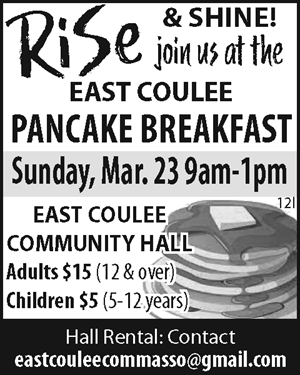
Dear Working Wise:
I hear that minimum wage is going up, but that there will be two minimum wages. I am a server in lounge. Which minimum wage will I get? Signed, Wondering Waitress
Dear Wondering:
Alberta’s minimum wage is rising from $8.80 to $9.40 per hour beginning September 1. A new minimum wage of $9.05 per hour for liquor servers will also come into effect in the fall.
I can not tell you what your hourly wage will be come September 1—that will be up to your employer—but it sounds like you could be paid as little as $9.05 per hour, because you serve liquor as a regular part of your job.
The new minimum wage rate for alcohol servers recognizes that these employees earn tips. It also provides employers with more flexibility on how they pay the rest of their staff, including cooks and dishwashers.
It’s important to remember that these are minimum wage rates—many employers choose to pay their employees more to attract and retain good people.
In fact, less than two per cent of Alberta employees make minimum wage right now—the least in the country. Nearly half of minimum-wage earners are under 25 years old and many work in the accommodation and food-services industries.
Minimum wage is meant to give students and others new to the workforce a foothold in the world of work. It is about getting job experience, work skills, extra income and savings for further education and training.
The differential wage for alcohol servers will remain at $9.05 per hour until the general minimum wage reaches $10.05 per hour. From then on, both wage rates will increase and a $1 differential between the two wages will be maintained.
Future minimum wage increases will take effect on September 1 of each year and will be based on increases in average weekly earnings and the Consumer Price Index in Alberta.
Setting an annual date and indexing the minimum wage will help make the increases more predictable for both employers and employees.
Minimum wage is the minimum amount employers must pay workers in Alberta, but there are a few exceptions, including:
· farm or ranch workers;
· securities salespersons;
· real estate brokers;
· insurance salespeople;
· students in approved work-experience programs or training courses;
· counsellors/instructors at non-profit camps; and
· extras in film or video production.
The exemptions I have listed here are fairly general. Alberta’s Employment Standards also includes a minimum weekly wage of $376 for some salespersons and professionals and a minimum monthly minimum wage of $1,791 for domestic employees.
For a more information on Alberta’s minimum wage rates and exemptions, visit www.employment.alberta.ca/es.
As I mentioned earlier, many minimum-wage earners are youth who work in the hospitality industry.
Anyone interested in increasing their earning power can visit their nearest Alberta Works office and talk to a Career & Employment Consultant about upgrading their skills and finding a better-paying career.
To find the Alberta Works office nearest you, click http://employment.alberta.ca/offices.
Do you have a work-related question? Send your questions to Working Wise, at charles.strachey@gov.ab.ca. Charles Strachey is a regional manager with Alberta Employment and Immigration. This article is provided for general information only.





























